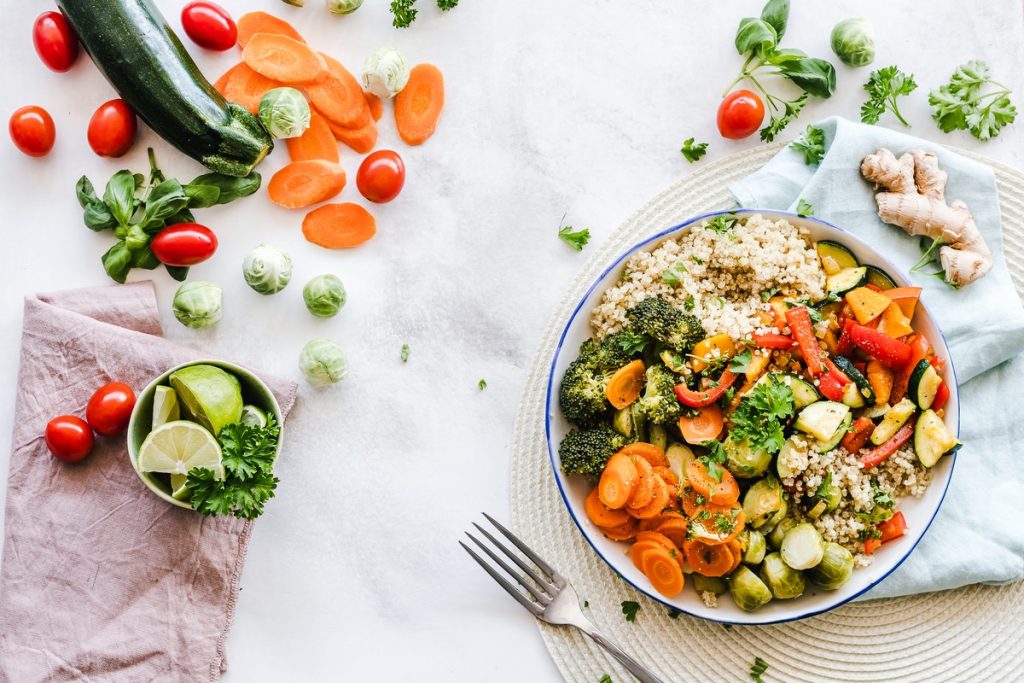You love food. You love trying new dishes, posting pictures of your meals on social media, and sharing your latest food finds with your friends. In short, you’re a foodie. But being a foodie doesn’t have to mean sacrificing your health. Here are a few steps you can take to become a healthy foodie:
Research healthy recipes
It’s important to research and find healthy recipes that fit your dietary needs and preferences. You can keep a few things in mind when searching for recipes.
First, consider what kind of foods you like to eat. Do you prefer savory or sweet dishes? Are you looking for something quick and easy to make, or are you willing to put in a bit more effort for a more complex dish? Once you have a general idea of the recipes you’re interested in, you can start looking for specific recipes that fit your criteria. There are plenty of resources available online and in cookbooks.
Whenever possible, try to choose recipes that use fresh ingredients. These tend to be more nutritious than processed foods. And finally, don’t be afraid to experiment! Trying new things is part of the fun of being a healthy foodie. Who knows, you might just find your new favorite recipe.
Take some vitamins
If you’re serious about eating healthy, you need to ensure you’re getting all the vitamins and nutrients your body needs. That means taking a daily multivitamin, as well as incorporating foods that are rich in specific vitamins and minerals into your diet.
For example, Vitamin C is important for immunity and collagen production, so eat plenty of citrus fruits, bell peppers, and leafy greens. Vitamin D is essential for bone health, so include fatty fish, eggs, and dairy in your diet. And don’t forget about magnesium-rich foods like dark chocolate, bananas, and nuts, which are important for energy production and muscle recovery.
By taking a daily multivitamin and eating various nutrient-rich foods, you can be sure you’re getting everything you need to stay healthy and happy.
Stay hydrated
When you feel those first rumblings of hunger, it’s easy to eat before drinking. But by the time you’re really feeling famished, you’re probably already dehydrated. Dehydration can lead to overeating because when you’re body isn’t getting enough fluid, it doesn’t function optimally.
You may not realize how tired you are or how much your muscles lack electrolytes. This can lead to irritability and make it difficult to concentrate on making good food choices. So next time you feel hungry, reach for a glass of water instead of heading for the fridge. Your body – and waistline – will thank you.

Listen to your body
Being healthy doesn’t mean giving up your love of good food. It just means being more mindful of what you eat and how it makes you feel. Start by listening to your body. Pay attention to how different foods make you feel after you eat them. Do you feel sluggish or have a lot of energy? Are you bloated? If you notice that certain foods make you feel less than stellar, try avoiding them or eating them in moderation. You may also want to keep track of the foods you eat in a journal to identify patterns.
Take care of your teeth
As a foodie, you take pride in your sense of taste. You love trying new dishes and exploring different flavors. But did you know that your sense of taste depends on your oral health? That’s right – to be a true foodie, you must take care of your teeth!
Your teeth are exposed to a lot of wear and tear. Every time you eat, drink, or even breathe, tiny particles of food and bacteria can build up on your teeth. If these particles are not removed, they can lead to tooth decay and gum disease. Not only will this affect your oral health, but it can also impact your sense of taste. That’s because the taste buds responsible for sweet, salty, and sour tastes are on the tongue. However, these taste buds need to be able to send signals to the brain to work properly. And if your teeth are covered in plaque or bacteria, those signals can get disrupted. As a result, you may not be able to taste your food as well as you could if your teeth were healthy.
So if you want to protect your sense of taste, it’s important to practice good oral hygiene. This means brushing and flossing regularly and making sure to see an experienced dentist. A dentist will be able to clean your teeth more thoroughly and spot and treat any potential oral issues before they become a problem. They can also give you personalized tips for maintaining a healthy and tasty smile. By taking care of your teeth, you’ll be able to fully enjoy all the delicious flavors that come your way as a healthy foodie.
So, if you’re looking to make a few healthy changes in your life, start by following these simple steps to becoming a healthy foodie. By eating nutrient-rich foods, staying hydrated, listening to your body, making smart choices when it comes to food, and taking care of your teeth, you’ll be on your way to better health and a happier you.











